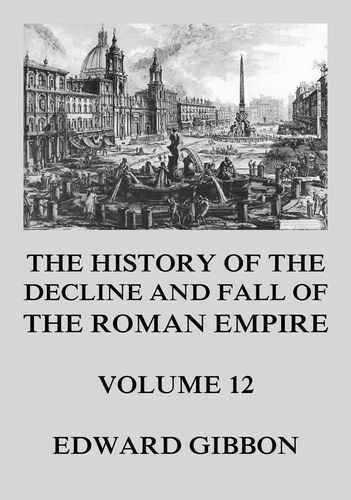- Ebook

In judging the 'The History of the Decline and Fall of the Roman Empire' it should carefully be observed that it falls into two parts which are heterogeneous in the method of treatment. The first part, a little more than five-eighths of the work, supplies a very full history of 460 years (A.D. 180–641); the second and smaller part is a summary history of about 800 years (A.D. 641–1453) in which certain episodes are selected for fuller treatment and so made prominent. To the first part unstinted praise must be accorded; it may be said that, with the materials at the author's disposition, it hardly admitted of improvement, except in trifling details. But the second, notwithstanding the brilliancy of the narrative and the masterly art in the grouping of events, suffers from a radical defect which renders it a misleading guide. The author designates the story of the later empire at Constantinople (after Heraclius) as "a uniform tale of weakness and misery," a judgment which is entirely false; and in accordance with this doctrine, he makes the empire, which is his proper subject, merely a string for connecting great movements which affected it, such as the Saracen conquests, the Crusades, the Mongol invasions, the Turkish conquests. He failed to bring out the momentous fact that up to the 12th century the empire was the bulwark of Europe against the East, nor did he appreciate its importance in preserving the heritage of Greek civilization. He compressed into a single chapter the domestic history and policy of the emperors from the son of Heraclius to Isaac Angelus; and did no justice to the remarkable ability and the indefatigable industry shown in the service of the state by most of the sovereigns from Leo III. to Basil II. He did not penetrate into the deeper causes underlying the revolutions and palace intrigues. His eye rested only on superficial characteristics which have served to associate the name "Byzantine" with treachery, cruelty, bigotry and decadence. It was reserved for Finlay to depict, with greater knowledge and a juster perception, the lights and shades of Byzantine history. Thus the later part of the Decline and Fall, while the narrative of certain episodes will always be read with profit, does not convey a true idea of the history of the empire or of its significance in the history of Europe. It must be added that the pages on the Slavonic peoples and their relations to the empire are conspicuously insufficient; but it must be taken into account that it was not till many years after Gibbon's death that Slavonic history began to receive due attention, in consequence of the rise of competent scholars among the Slavs themselves. This is volume twelve out of twelve.
-
FormatoEbook
-
EstadoNuevo
-
Isbn9783849658632
-
Peso500.6 KB
-
Número de páginas384
-
Año de edición2020
-
IdiomaInglés
-
FormatoEPUB
-
ProtecciónDRM
-
ReferenciaBKW40612
